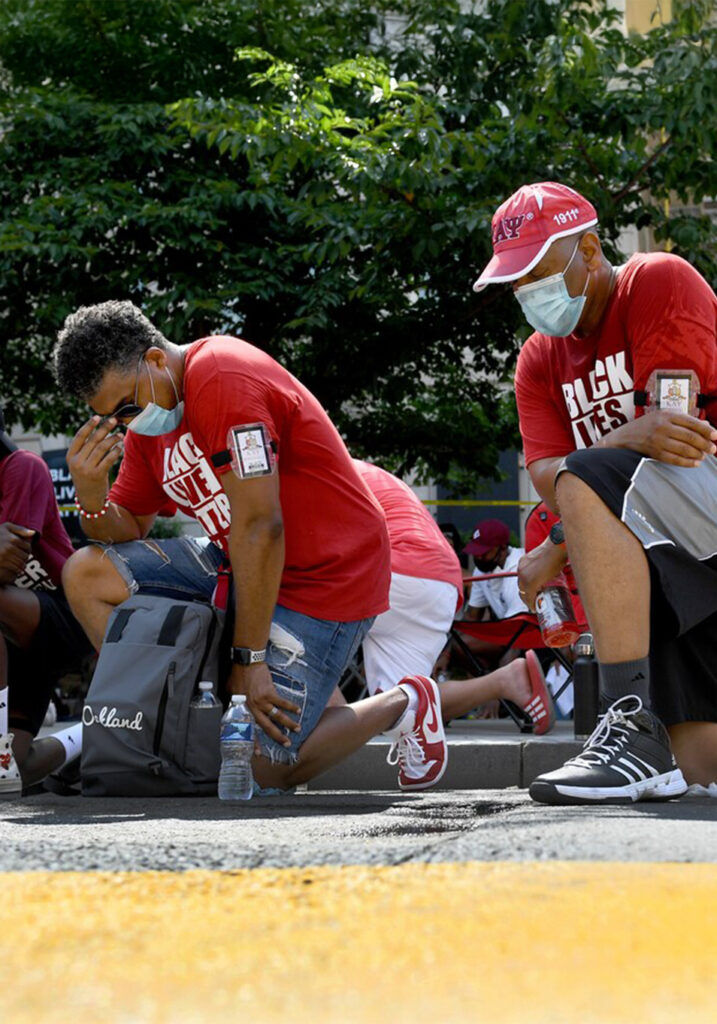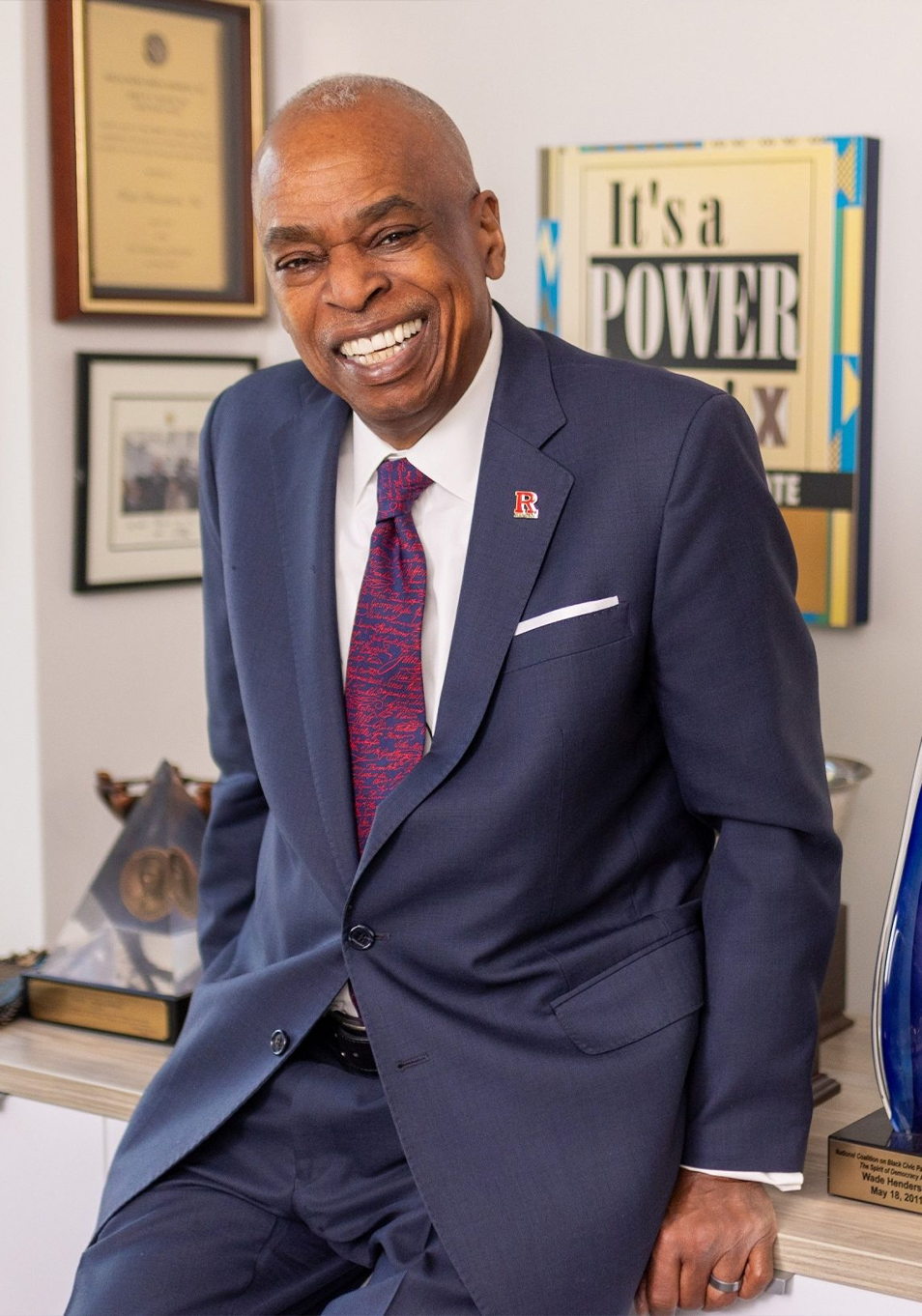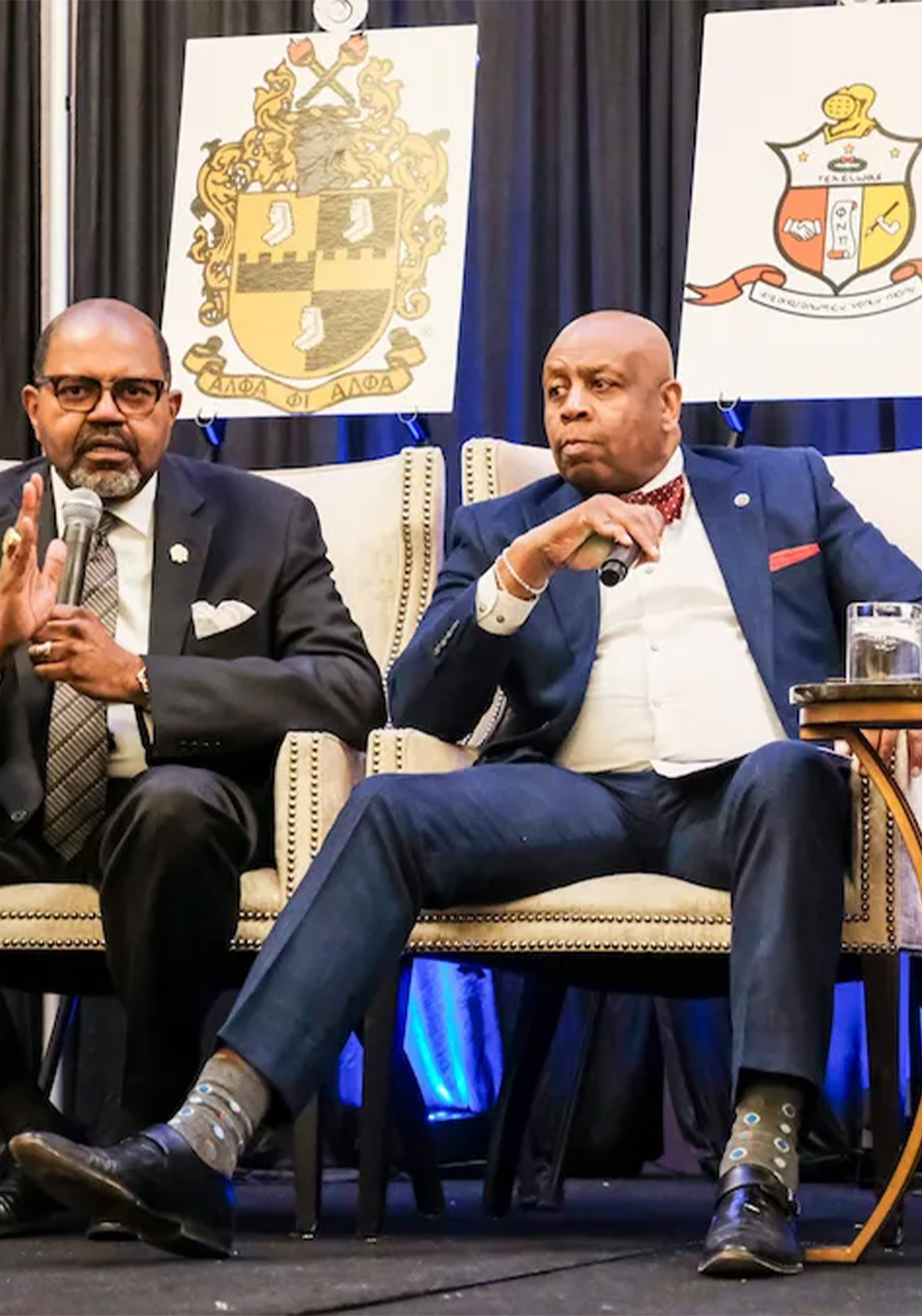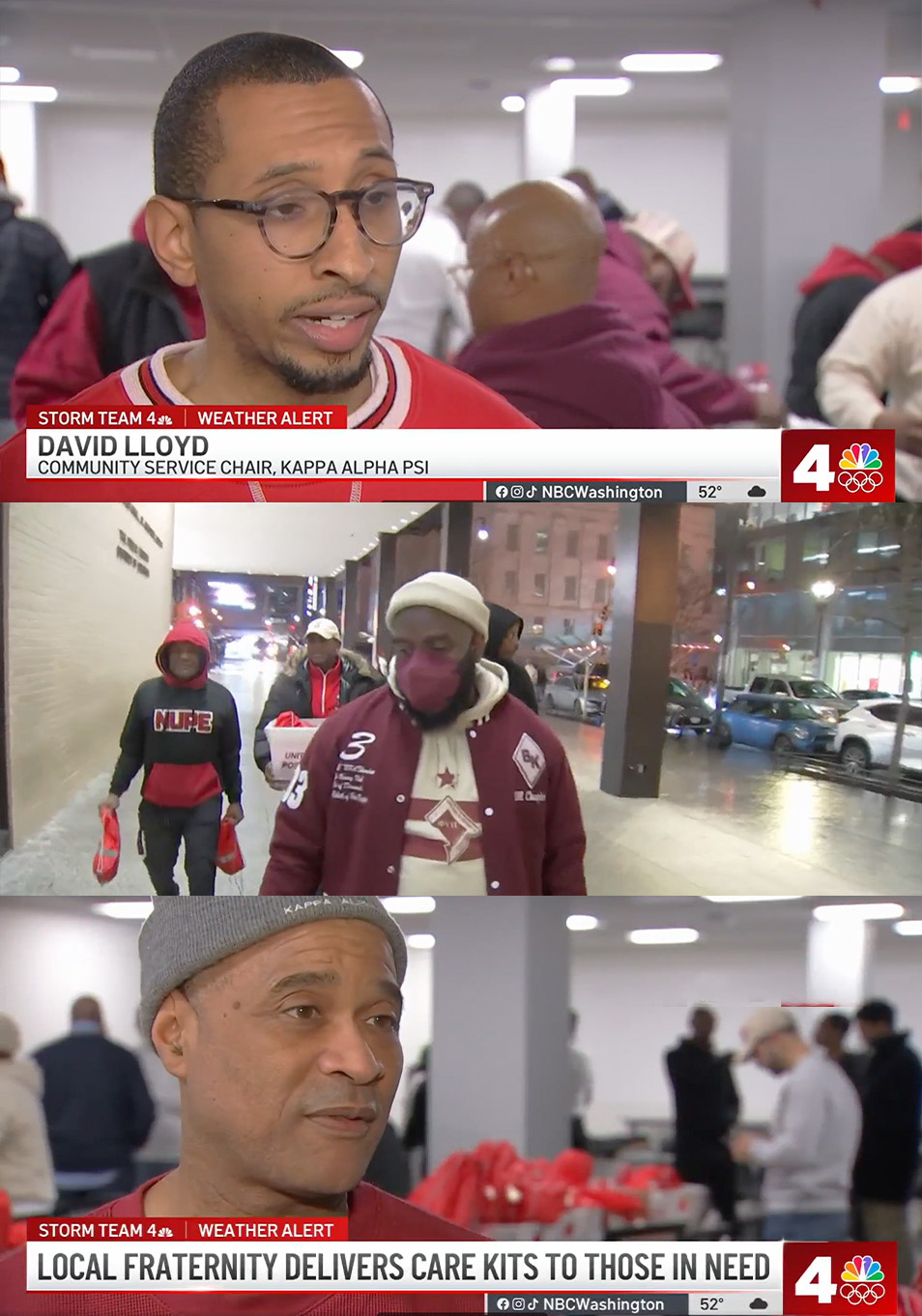The Washington Press on BGLO's Coming Together to Honor George Floyd
Cellphones and cameras overheated as white-haired alumni dropped to their knees with 20-something student leaders, marking eight minutes and 46 seconds of silence to honor George Floyd, whose death in the custody of Minneapolis police seven weeks ago triggered a national reckoning on racism and police conduct.
Organizers said they wanted the event to serve as an acknowledgment and, more importantly, a reminder of the origins of African American Greek-letter organizations, many of which were founded to resist racism in the early 20th century.
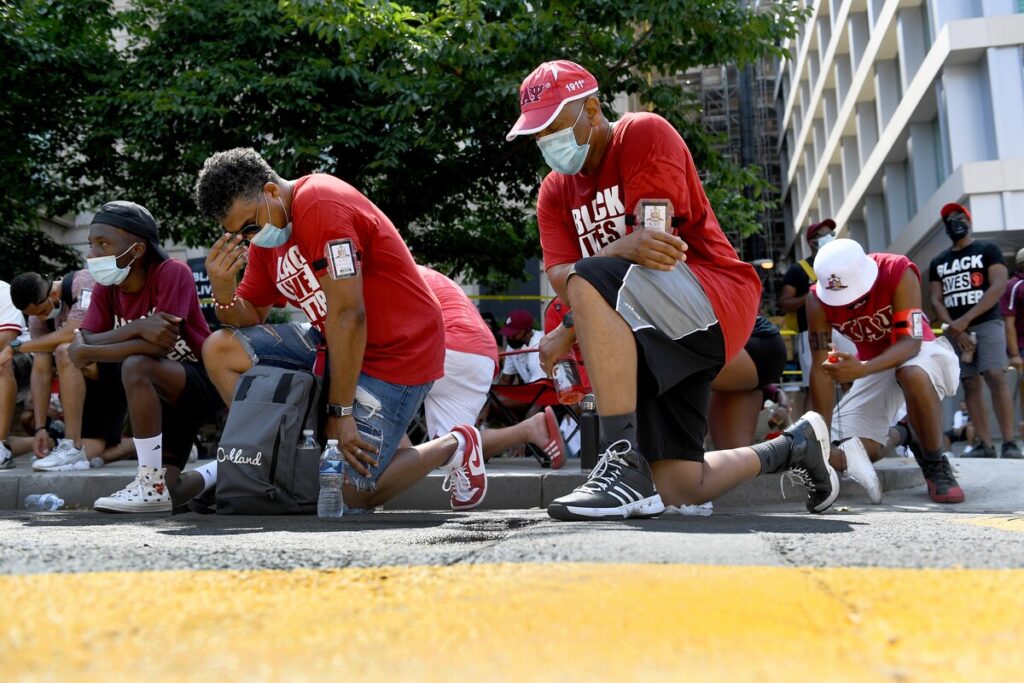
Leaders of Social Justice
“Our organizations were born through social justice, born to fight for what was right,” said Gordon-Andrew Fletcher, 35, an attorney and an alumni leader of Kappa Alpha Psi Fraternity Inc. “Black Greeks now — we aren’t as relevant and as present as we should be.”
Founded at Indiana University in 1911, Kappa Alpha Psi is among the nine historically African American fraternities and sororities that make up the National Pan-Hellenic Council, also known as the “Divine Nine.”
Representatives from all nine institutions attended Sunday’s event, Fletcher said, but Kappa Alpha Psi was the organizer, and its members made up the majority of the crowd.
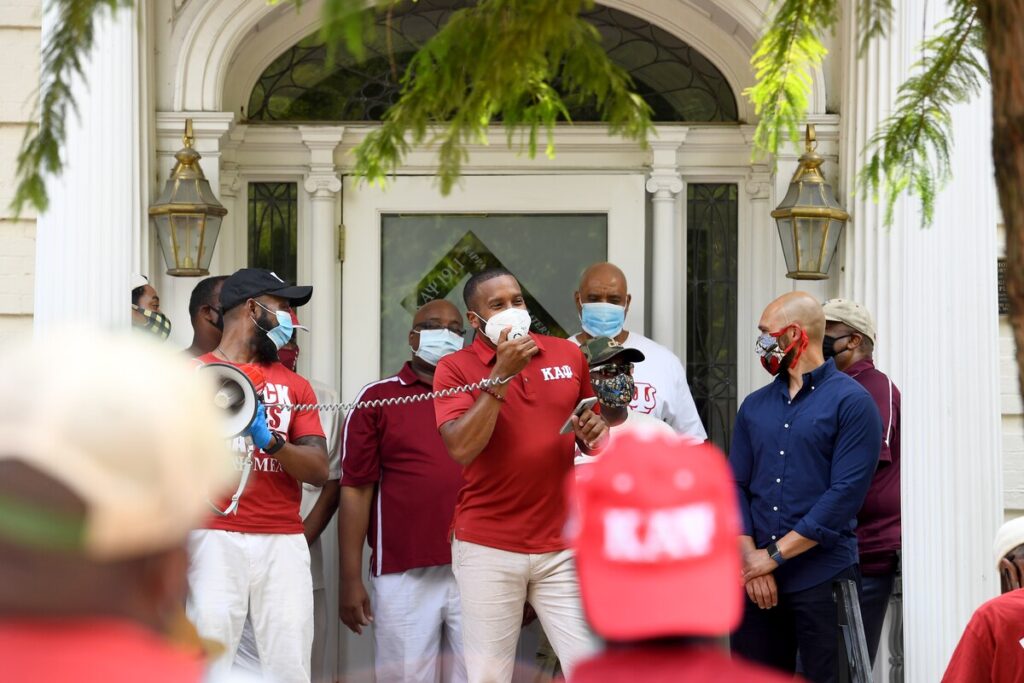
Showing Up When It Matters
About 30 Kappa Alpha Psi members met outside the fraternity’s alumni chapter house at 1708 S St. NW before marching down to Black Lives Matter Plaza. Alumni in their 50s and 60s bumped elbows, reminisced about protests they had attended as college students and swapped stories about their lives during the coronavirus pandemic.
Delante Cherry, 26, was among the small group of younger men present, many of whom said they had attended multiple racial justice protests in the past month.
“We’ve seen a lot of different people coming together in D.C., but I’ve wanted to see more black outrage,” said Cherry, who joined the fraternity when he attended the University of the District of Columbia. “So to see my chapter coming together like this . . . it’s something I couldn’t miss.”
Natalie Stuppard, 28, said she wanted to march with members of her sorority — Sigma Gamma Rho — to counter the perception that black Greek-letter organizations are elitist. She joined the organization as an undergraduate student at Towson University in Maryland.
“We want to show that we’re out here, that we’re with the community,” Stuppard said, standing on the bright yellow letters spelling out Black Lives Matter, where she said she had faced off against armed law enforcement a month earlier.
She noted that Sandra Bland, the Texas woman who reportedly died by suicide in jail after being arrested for a pretextual traffic stop in 2015, was a member of Sigma Gamma Rho.
“We are them,” said David Hardrick, 75, while addressing the crowd. “Make no mistake, we are those black men and women getting shot down in the streets.”
“Our organizations were born through social justice, born to fight for what was right,”
The Mission Is Not Complete
Hardrick was talking to the younger fraternity and sorority members at the plaza when an older man with a tuft of curly white hair waved his walking stick and called for him to come over.
His name was Samuel McCoy, and he was 85 years old. Dressed in a red Kappa Alpha Psi T-shirt, matching red suspenders, black slacks and black leather shoes, McCoy somehow managed to look more at ease under the searing heat than most of the other people gathered outside Lafayette Square.
Born and raised in the District, he was initiated as a brother at the University of the District of Columbia in 1956. He has attended too many protests in his lifetime to count, he said, including several with the Rev. Martin Luther King Jr. and the late congressman John Lewis (D-Ga.), who died on Friday.
When asked why the two seniors had continued to stay engaged with their fraternity and attend Sunday’s event, Hardrick said simply: “Because the mission is not complete.”
McCoy paused, thinking. Then, with a grin, he leaned over and said, “Listen closely: KA Psi till the day I die.”

